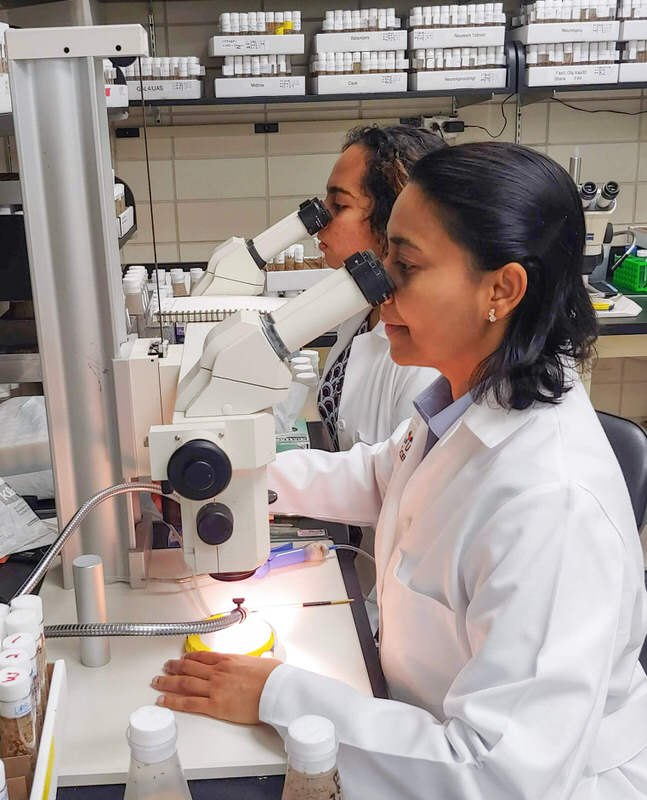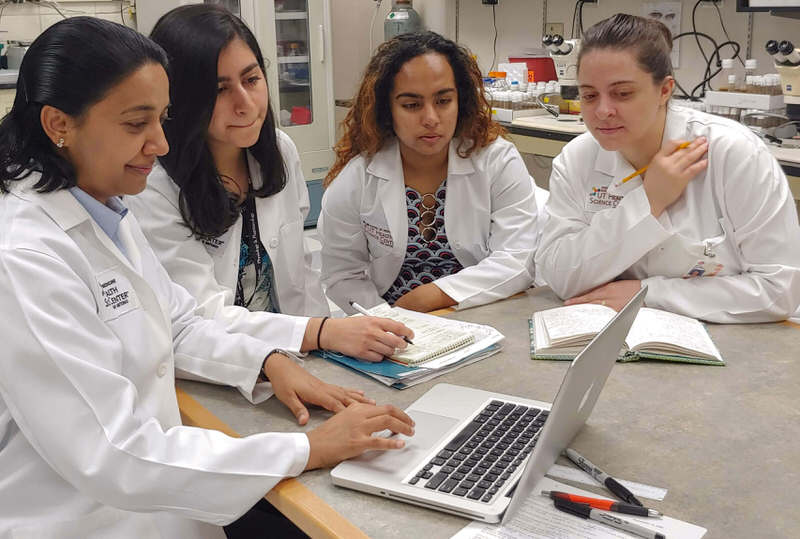Spotlight on Dr. Swati Banerjee

1) Please tell me about yourself.
I was born and raised in India in a family that valued education more than anything else. After completing my Masters and Ph.D. in India, I came to the United States for my postdoctoral research. And, here I am now, a faculty in the Department of Cellular and Integrative Physiology at UT Health San Antonio.
2) Tell me about your research interests and why you are passionate about this topic?
We are currently exploring three research themes using the fruit fly Drosophila as our model system. 1 Neuron-Glial Interactions and its importance in ensheathment of axons: These studies are relevant to vertebrate myelination and are important to understand human neurological disorders such as Multiple Sclerosis and other peripheral neuropathies. (2) Trans-synaptic adhesion and signaling: Trans-synaptic signaling shape neural networks to process and refine information and there is increasing evidence of synaptic dysfunction as an underlying cause of neurodevelopmental disorders such as Autism Spectrum Disorders as well as psychiatric disorders such as Schizophrenia. 3 We are also investigating proteins and molecular pathways that maintain axonal, synaptic and cytoskeletal health and their roles in neurodegenerative disorders such as Alzheimer’s disease, Parkinson’s disease and ALS.
The reason I am passionate about these topics is because of their importance in understanding how the nervous system functions and also their relevance from the standpoint of various human neurological and neurodegenerative disorders.
3) What do you want the public to know about your research? Why is your topic important?
I want people to know that research using model system is important to understand not just the basic biological principles that operate in different cellular contexts but also to understand human health and disease. Also, people should know that research using invertebrate model systems such as Drosophila or C. elegans are not any less important that higher order vertebrates because there exists a high degree of genetic conservation. I can speak for Drosophila since I have worked with this model for almost two decades now. Drosophila has been around as a model for more than a century, and once the genome got sequenced, it was found that approximately 75 percent of human disease related genes are conserved in Drosophila. Just to further highlight the relevance and power of Drosophila, last year’s Nobel Prize in Physiology or Medicine was awarded to three Drosophila researchers for their seminal work on circadian rhythm. So, my hope is that research with Drosophila as a model is supported, promoted and funded more, and at the very least, is not dismissed because it is far apart from humans on the evolutionary time scale.
4) What is your favorite part of your job?
The pursuit of knowledge and the element of discovery are my favorite parts. And, although this job requires some level of personal sacrifice in terms of time, it also gives you the freedom and flexibility that is unmatched compared to many other professions.
5) What is the most challenging part of your job?
At every career stage, obtaining as well as retaining funding is perhaps the most challenging part of this job. It is also challenging sometimes to assemble and inspire a team of people who can understand and contribute meaningfully towards your scientific enterprise.
6) What do you like most about mentoring students?
It is pure joy to see students learn, grow and excel. Besides, I get to learn so much as well.
7) What is the most helpful advice you’ve received?
Be graceful in victory and defeat.
8) Who has influenced you the most in life?
Not just one, but there are a number of people who have influenced me. First and foremost, my Dad and my Mom, with their unconditional love, support and belief in me more than I believed in myself. My brother, who was my absolute best friend growing up, and still is. And, of course my mentors, for their intellectual inputs, guidance, support and the opportunities that they provided me with at every career stage.
9) What is your favorite quote?
“Never, never, never give up” – Winston Churchill.
10) If you could have dinner with one person, living or dead, who would it be?
My dad.
